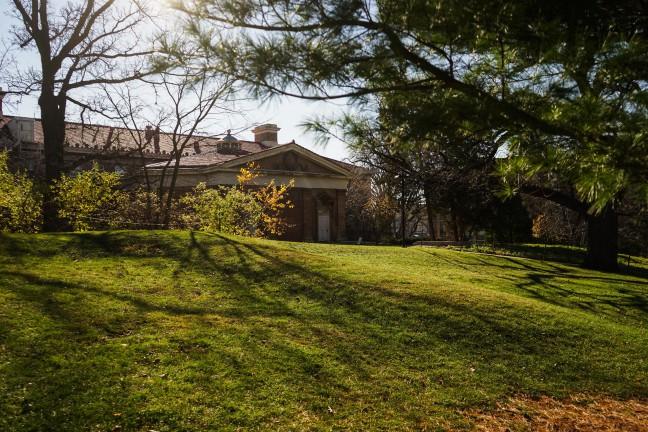Tribal and federal Ho-Chunk lawyer Samantha Skenandore presented on the history of the Teejop community as well as the sacred grounds that the University of Wisconsin is built on at Memorial Union as part of the WUD Distinguished Lecture Series, Monday night.
Skenandore, a member of the Ho-Chunk nation and UW alumnus, has served in multiple capacities in federal and tribal courts for over 15 years. She recently finished a four year term as an associate justice on the Ho-Chunk Nation Supreme Court. She has previously represented over 20 tribes and additional clients in front of Congress and federal agencies.
Provost and Vice Chancellor of Academic Affairs John Karl Scholz spoke about the University’s efforts to reconcile its inaction to recognize the Ho-Chunk people. He said the university community has only recently learned about and worked with the Ho-Chunk people.
“We, as an institution, have not historically been mindful of our relationship with the people who were here before us,” Scholz said. “We are working to change that.”
In honor of the Ho-Chunk nation, Scholz said UW implemented a marker this past June. The marker will be moved around campus throughout the next year until it is permanently placed on Bascom Hill after construction has cleared.
Skenandore highlighted the continuation of colonial domination and challenged the audience to question whether they are still “blindly led to perpetuate colonial domination.”
Skenandore spoke about her work on indigenous historic sites over 10,000 years old that are identical to oral stories. She said people often encounter these sites and are completely unaware. Skenandore emphasized that the value of cultural property is not measurable, though Madison’s history reflects atrocities against this very principle.
“There used to be a popular Sunday practice [in Madison] of looting indigenous mounds after church,” Skenandore said. “If you walked right across the street here, you’d find colonizers enjoying picnics with their children while digging into these monuments, probably exposing and disturbing these human remains.”
New Elders-in-Residence Program aims to improve experience of UW Native American students
Skenandore emphasized that while many people believe these practices are in the past, they still carry into today. She said the United States has “some of the worst indigenous federal law on the face of the planet.”
Skenandore said the importance of indigenous cultural property makes them targets of exploitation, theft and irreversible harm. Skenandore encouraged students to “practice mindfulness” and honor the Ho-Chunk people by remembering them.
“[The mounds] were meant for you to go out there, sit next to them and think and grow and be part of them,” Skenandore said.
She cited multiple mounds and sites on campus that students can visit. Skenandore said that people should try to think of how the tribal people lived and absorb the energy of the Ho-Chunk people embodied by the sacred sites on campus.













